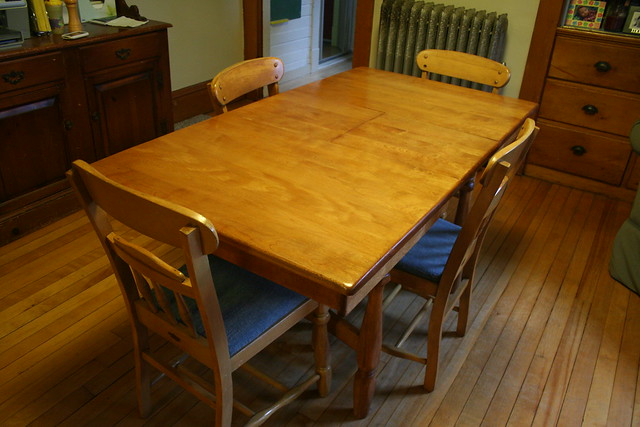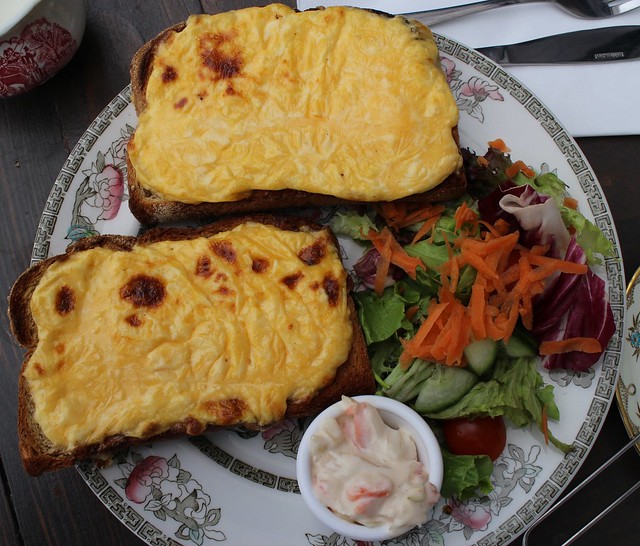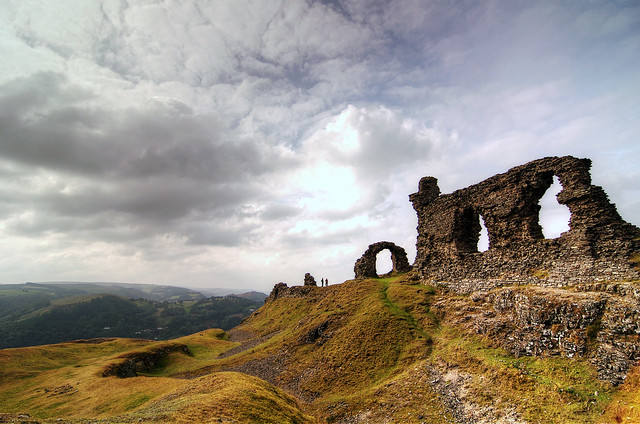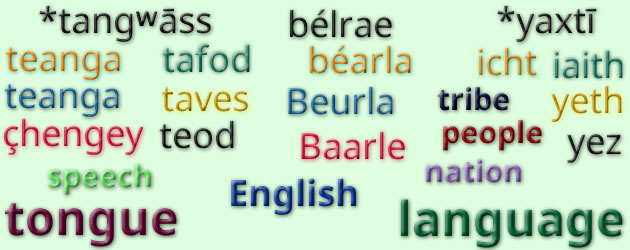There are a number of words for fields, meadows and pastures in Celtic languages. Some appear only or mainly in placenames. Here’s a selection:
Words marked with a * are reconstructions.
| Old Irish (Goídelc) | achad = expanse of ground; pasture, field; field of battle |
|---|---|
| Middle Irish (Gaoidhealg) | achad = expanse of ground; pasture, field |
| Irish (Gaeilge) | achadh [ˈaxə/ˈaxuː] = field (archaic, used mainly in placenames) |
| Scottish Gaelic (Gàidhlig) | achadh [axəɣ] = field, plain, meadow; cornfield newly cut or ready for reaping achadh-feòir = hayfield achadh-guail = coalfield bàn-achadh = fallow field |
Etymology: unknown, possibly related to the Latin acnua (a measure or piece of land, 120 feet square) [source].
| Proto-Celtic | *gortos = fence, enclosure, pen |
|---|---|
| Old Irish (Goídelc) | gort = field, orchard, crop |
| Middle Irish (Gaoidhealg) | gort = field (arable or pasture land), field of battle, land, territory, standing corn guirtine = a little garden |
| Irish (Gaeilge) | gort [ɡɔɾˠt̪ˠ] = (cultivated) field, orchard, (standing) crop gortbhriseadh = tilling a field, tillage gortghlan = to clear (a field) of weeds, to weed out gortghlanadh = clearance (of a field), weeding gortghlantóir = weeder |
| Scottish Gaelic (Gàidhlig) | gort [gɔrˠʃd] = standing corn; enclosure; small field |
| Proto-Brythonic | *gorθ = field |
| Welsh (Cymraeg) | garth = field, close, enclosure, fold, pen, yard; fort garthan = entrenchment, encampment, camp, stronghold, field of battle gartheiniad = camp defender |
| Cornish (Kernewek) | gorth = field |
| Old Breton | orz = field |
| Breton (Brezhoneg) | garz = field |
Etymology: from the Proto-Indo-European *ǵʰortós (enclosure, hedge) [source], which is also the root of words yard and garden in English, via the Proto-Germanic *gardaz (enclosure, court, yard, garden) [source].
| Old Irish (Goídelc) | macha = milking-yard |
|---|---|
| Middle Irish (Gaoidhealg) | macha, machad = an enclosure for milking cows, a milking-yard or field |
| Irish (Gaeilge) | machaire = plain; stretch of level ground, links, course; field |
| Scottish Gaelic (Gàidhlig) | machair [maxɪrʲ] = extensive low-lying fertile plain, level country; extensive beach; ow and level part of a farm |
| Manx (Gaelg) | magher = field, fertile land, campaign, chase, machar, sphere |
Etymology: possibly from the Latin mācĕria (wall, enclosure) [source].
| Proto-Celtic | *rowesyā- = field, open ground |
|---|---|
| Old Irish (Goídelc) | róe [r͈oːi̯] = battle-field, level piece of ground, fight, battle |
| Middle Irish (Gaoidhealg) | róe, roe = a level piece of grand, a battle field, battle, a rout, fight |
| Irish (Gaeilge) | ré [rˠeː] = stretch of ground, level ground, field |
| Scottish Gaelic (Gàidhlig) | raon [rˠɯːn] = field, (piece of) ground; plain; zone, area; field (of expertise); ambit |
| Manx (Gaelg) | rheam = gamut, range, field, monarchy |
| Old Breton | runt = mound |
| Breton (Brezhoneg) | run = mound, hill |
Etymology: from the Proto-Indo-European *Hrew(H)os (open space, field). The English words rustic and rural come from the same root, via Latin [source].
| Proto-Celtic | *kagyom = pen, enclosure |
|---|---|
| Gaulish | cagiíun / *kagyom = enclosure |
| Old Irish (Goídelc) | cai = field, orchard, crop |
| Irish (Gaeilge) | cé [kʲeː] = quay |
| Scottish Gaelic (Gàidhlig) | cidhe [kʲi.ə] = quay cidhe-tìreachaidh = wharf cidhe-bathair = goods wharf |
| Manx (Gaelg) | keiy = jetty, quay(side), wharf |
| Proto-Brythonic | *kaɨ = animal pen, enclosure, field |
| Middle Welsh (Kymraec) | kay / kae = field, enclosure |
| Welsh (Cymraeg) | cae [kaːɨ̯ / kai̯] = hedge, hedgerow, fence; field, enclosure; circle, sphere; barrier, obstruction caead = lid, cover, shutter, flap, shell, case, enclosure, case, wall, fence, hedge, field, buckle, clasp, fastener, valve caeadu = to bind, cover (a book), stop, close cei [kei̯] = quay |
| Cornish (Kernewek) | ke = hedge, fence kay = quay |
| Old Breton | cai = hedge |
| Middle Breton | quae = hedge |
| Breton (Brezhoneg) | kae [kɛː] = hedge, quay |
Etymology: from the Proto-Indo-European *kagʰyóm (enclosure, hedge) [source], which is also the root English words quay and hedge [source].
The Irish, Scottish Gaelic and Manx words for quay come from the same Proto-Celtic root, via the Anglo-Norman kay, cail (quay, wharf) and Gaulish [source]. The Welsh and Cornish words for quay also come from the same Proto-Celtic root, via Middle English, Old French and Gaulish [source].
Words from the same Proto-Celtic root, via Gaulish *kagyom and Latin caium (storehouse, shop, workshop, quay, wharf) include quai (quay, wharf, platform) in French, quay in English, кей (kej – quay, pier, wharf, jetty) in Bulgarian, and cais (quay, pier, wharf, platform) in Portuguese [source].
| Proto-Celtic | *magos = plain, field |
|---|---|
| Gaulish | *magos = field |
| Old Irish (Goídelc) | mag [maɣ] = plain, field ármag, árbach, ármach = field of slaughter, battlefield |
| Middle Irish (Gaoidhealg) | mag, maig = plain, open stretch of land |
| Irish (Gaeilge) | má [mˠɑː / mˠæː] = plain |
| Scottish Gaelic (Gàidhlig) | magh [mɤɣ] = level country, plain Magh Meala = Land of (Milk and) Honey (in mythology) Magh Meall = elysium magh na bàire = the plain of battle |
| Manx (Gaelg) | magh = plain |
| Middle Welsh (Kymraec) | mais, maes, meys = open country, plain, field |
| Welsh (Cymraeg) | maes [maːɨ̯s / mai̯s] = open country, level land, plain; field; battle, victory, supremacy; out, away, off, outside, out of doors maesol = rural, agrarian maestref = suburb, country town, village, hamlet maestrefol = suburban |
| Middle Cornish (Cernewec) | maes, mes, meas, meys = open country, plain, field |
| Cornish (Kernewek) | mes = open country mestrev = suburb mesya = to field |
| Old Breton | maes = countryside, outside |
| Breton (Brezhoneg) | maez = countryside, open field, outside, wide |
Etymology: possibly from the Proto-Indo-European *meǵh- (great) [source].
| Proto-Celtic | *klowni = meadow |
|---|---|
| Old Irish (Goídelc) | clúain = meadow |
| Middle Irish (Gaoidhealg) | clúain, clóin = meadow, pasture-land, glade |
| Irish (Gaeilge) | cluain = meadow |
| Scottish Gaelic (Gàidhlig) | cluain [kl̪uən̪ʲ] = green field, pasture, meadow |
| Old Welsh | clun = meadow, moor |
| Middle Welsh (Kymraec) | clun = meadow, moor |
| Welsh (Cymraeg) | clun [klɨːn / kliːn] = meadow, moor; brake, brushwood |
Etymology: possibly from the Proto-Indo-European *klopni (wet).
| Old Irish (Goídelc) | áirge [ˈaːrʲɣʲe] = a place for milking cows |
|---|---|
| Middle Irish (Gaoidhealg) | áirge, arigi, airge = a place for milking cows, byre, cowshed, herd of cattle áirgech = having numerous herds, herdsman |
| Irish (Gaeilge) | áirí = milking-place, herd (of cows), ground manured in previous year; ground from which potatoes have been cropped |
| Scottish Gaelic (Gàidhlig) | àirigh [arʲɪ] = hill pasture, bothy, sheiling, pastoral summer residence àirigheach [aːrʲɪjəx] = bounding in hill pastures. bothies or shielings àirigheachd [aːrʲɪjəxg] = transhumance |
| Manx (Gaelg) | eairee = hill pasture, shieling |
Etymology: from Old Irish árach, from ad·rig (to tie, bind). The Faorese word ærgi [ˈaɹt͡ʃɪ] (a pasture for cattle to graze over the summer with a hut where the people tending them live meanwhile; a shieling, saeter) also come from the same roots [source].
Words marked with a * are reconstructions.
Sources: Wiktionary, Am Faclair Beag, Online Manx Dictionary, Teanglann.ie, eDIL – Electronic Dictionary of the Irish Language, In Dúil Bélrai English – Old Irish glossary, Geiriadur Prifysgol Cymru, Gerlyver Kernewek, Lexicon Cornu-britannicum: A Dictionary of the Ancient Celtic Language of Cornwall, Dictionaire Favereau, TermOfis, Le dictionnaire diachronique du breton, Etymological Dictionary Of Proto Celtic









